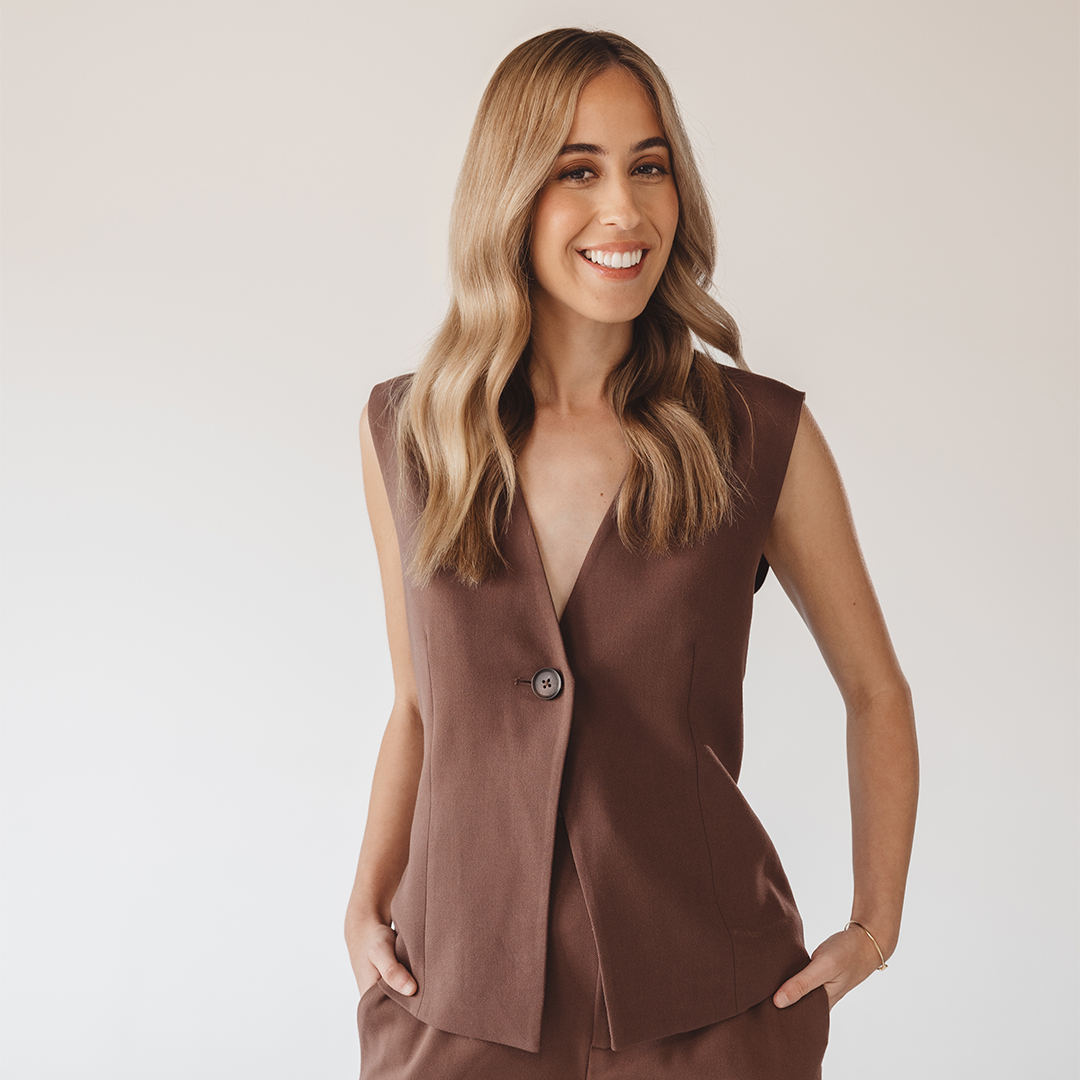
Should You? Or Shouldn’t You? Why More Women Are Freezing Their Eggs
TIME TO CHILL?
Whether you’re planning to start a family or not, there’s a good chance you’ve heard a friend, a colleague, or even someone you follow on social media talk about egg or embryo freezing.
In recent years, the number of women choosing to freeze their eggs in the hope of having a family later in life has dramatically increased. Dr Meghan Stafford, gynaecologist and fertility specialist at City Fertility in Newstead, says the clinic alone has seen a 26.4 per cent increase since 2021. But what exactly is egg or embryo freezing and what does it entail?
We sat down with Meghan to learn more about the process, success rate, and whether it’s a path all women over a certain age should consider – here’s what she had to say…
Let’s start with the basics: what is the difference between egg and embryo freezing?
The main difference between egg and embryo freezing is the timing of the freezing process and the developmental stage at which the biological material is preserved. In the natural menstrual cycle, a woman’s body produces a number of follicles, each containing an immature egg. Typically, due to the release of the follicle-stimulating hormone (FSH), only one follicle grows or matures and ovulates each month.
In the egg freezing process, the woman undergoes injections of FSH to stimulate the growth of multiple follicles. Before ovulation, the eggs are carefully collected from the ovaries using a technique called transvaginal oocyte retrieval. At this stage, the process of egg freezing and embryo freezing is pretty much the same. The only difference is in the next steps that take place in the laboratory.
In egg freezing, the retrieved eggs are frozen using a cryopreservation technique called vitrification. These frozen eggs can then be stored for up to 10 years and then be extended if requested by the patient. In embryo freezing, the retrieved eggs are fertilised with sperm, and the resulting embryos are then frozen for future use.
Which is better?
It really depends on the patient’s individual circumstances and their family planning goals. Several factors play an important role when we talk about the outcomes of egg or embryo freezing and the likelihood of pregnancy. We have to think about the woman’s age, her ovarian reserve, which broadly refers to the number of eggs remaining, and her complete medical history. Success rates can vary significantly from one individual to another, which is why it is important to have a really good discussion with a specialist. Generally speaking, we would normally expect a single pregnancy if a woman has around ten to fifteen eggs frozen at the age of 35 years or younger. As for the success rate of frozen embryo transfer, the current statistics indicate a success rate of 40 per cent per embryo transferred.
So, what is the process?
To go on the journey of egg freezing, the process involves the following steps:
- Firstly, making an appointment with a fertility specialist. You will need a GP referral prior to seeing the specialist to ensure you receive a Medicare rebate for the appointment.
- During your first appointment, you will meet with the fertility specialist to discuss your medical and fertility history. Some pathology tests and a pelvic ultrasound will be arranged.
- During the follow-up consultation with a specialist, we discuss the test results and ultrasound scan to establish a personalised treatment plan.
- You will then have a consultation with a fertility nurse to discuss the treatment plan and receive a detailed education session on the use of injections and medications.
- Treatment begins with your menstrual period. In order to freeze your eggs, you will need to go through what we call a stimulated cycle where you’re given medication to encourage the ovaries to produce more than one egg, which is the normal biological job in each menstrual cycle. So, on the first day of the menstrual cycle, you need to contact our fertility nurse to confirm medication and treatment starting date. A follicle count scan at day eight or nine of the treatment cycle will monitor your response to the medication.
- The egg collection is performed while you’re lightly sedated. To ensure that the eggs are retrieved at the right stage, the process is all very carefully timed.
- Eggs are frozen and we then contact you to advise the number of eggs frozen. All frozen eggs are securely stored in a special facility for several years.
How long can the eggs be stored for?
Scientifically, there is no strict limit to the length of time that eggs or embryos can be stored. National guidelines suggest that eggs or embryos can be frozen for up to 10 years. When the frozen eggs or embryos are not used, you have several options: to thaw and discard or to donate for scientific training purpose or to another individual/couple.
Now for the nitty gritty…. price-wise, what are you looking at?
An egg freezing cycle typically costs $5,350, which includes the initial appointment with the fertility specialist, planning and management of the cycle, the cycle fee, egg freezing, the fertility specialist procedure fee, plus the first six months of storage (after this, it’s $35 per month). The cost of the medications (approximately $1,500) isn’t included as it will vary from patient to patient and if the patient does not have private health insurance, the day hospital fee may be an additional cost of approximately $1,300.
I think it’s important for women to know that both egg and embryo freezing are elective procedures, and as such, there is no Medicare rebate available for these services. However, there are exceptions for women who are undergoing treatments or procedures that may impact their fertility, such as chemotherapy or endometriosis surgery. In such cases, there may be eligibility for certain rebates or financial assistance.
What is the best age to freeze your eggs?
Generally, the optimal age for egg freezing is typically between ages 30 and 35. Of course, there are always circumstances where it may be appropriate for women at other ages. Freezing eggs at a younger age provides a higher chance of success when the time comes to use them. On the other hand, the older a woman is, the fewer eggs she is likely to produce.
For women who are not ready for kids yet, but want to safeguard their future, should they be considering it?
Certainly, knowledge is indeed empowering, and it’s crucial for women to be aware of their options.
Making an appointment with a fertility specialist is a great way to get a better understanding of what options are available to you and what’s involved in the process. Many of the women I see in my practice are choosing to freeze their eggs due to career choices, wanting to further their education, waiting for the right partner, or quite simply they are just not ready to start a family and want to keep their options open.
Are there any other reasons why someone would go down this path?
Several groups of women may find egg freezing a good option:
- Women facing medical conditions, such as cancer, or preparing for chemotherapy or radiotherapy should consider it. These treatments can potentially harm a woman’s eggs, making it crucial for those in such situations to consult a fertility specialist about available options.
- Some women who are undergoing surgery to treat endometriosis should consider whether egg freezing is important prior to surgery, especially if the endometriosis involves their ovaries.
Disclaimer: the content here is for informational and educational purposes only, it is not attended for medical advice. Please speak with your medical practitioner before making any decisions.









